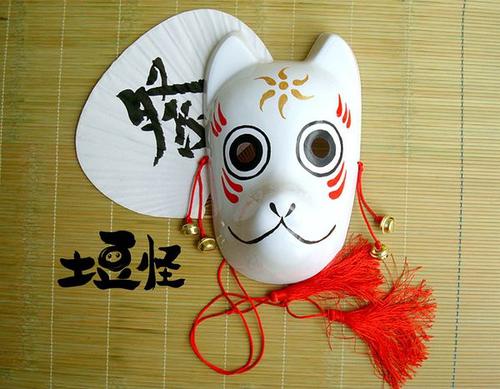做考研英语真题后,翻译近30多篇真题阅读,这样做对其它题型帮助大吗?
 推知
推知考研英语的翻译题真是不知道如何下手啊,让人头疼啊,这个翻译题我还不想放弃,谁有答题技巧可以说一下不
 是谓能移
是谓能移 环中
环中
考研英语翻译题是有一定难度,但是希望大家不要放弃,英汉词句组成和排列的顺序千差万别,因此英译汉时作些调整,颠倒一下顺序,则是一种极为常见的翻译答题技巧,这种技巧共分五种类型,下面,新东方在线详细为大家解读。 1、复合句翻译技巧 复合句翻译可分为部分翻译和完全翻译两种技巧。 This university has newly established faculties, namely Electronic Computer, High Energy Physics, Laser, Geo-physics, Remote Sensing, and Genetic Engineering. 这所大学现在有电子计算机、高能物理、激光、地球、物理、遥感技术、遗传工程等六个新建的专业。(部分翻译) Many laws of nature actually exist in nature though they have not yet been discovered. 虽然许多自然规律还没被发现,但是它们确实在自然界中存在。(完全翻译) 2、被动句翻译的技巧 被动句翻译时,有时可将被动句翻译成主动句,有时可将状语翻译成主语。 The structure of an atom can be accurately described though we cannot see it. 虽然我们看不见原子结构,但能准确地描述它。(被动句翻译成主动句) Table tennis is played all over China .中国到处都打乒乓球。(状语翻译成主语) 3、以否定型副词或条件副词开头的句子的部分翻译技巧 能引起这种翻译的副词有no, never, hardly, no longer, in no way, not until, not even, only等。 Never before have I read such an interesting book .我从来没有读过这样有趣的书。 4、带有介词短语句子的部分翻译技巧 These data will be of some value in our research work. 这些资料对于我们的研究工作有些价值。 5、习语的翻译技巧 习语的翻译可分为按照汉语的固定顺序翻译和从轻重上加以区分进行翻译以及逆时间顺序进行翻译三种技巧。 For its last 600 miles the Yellow River flows eastwards through the flat, fertile, North China Plain, which is densely populated. 黄河最后的六百英里,向东流过平坦肥沃、人口密集的华北平原。(按照汉语的固定顺序翻译) Heal the wounded, rescue the dying, practice revolutionary humanitarianism. 救死扶伤,实行革命的人道主义。(以轻重上区分进行翻译) We have to be quick of eye and deft of hand .我们必须眼疾手快。(逆时间顺序翻译)马上考了是不?做十道题就差不多了,语感是慢慢来的
考研英语翻译题怎么算分
 法国版
法国版 乡原
乡原
2018年考研大纲对英语一翻译的要求是:主要考查考生准确理解概念或结构较复杂的英回语文字材料的能力。要求考答生阅读一篇约400词的文章,并将其中5个划线部分(约150词)译成汉语,要求译文准确、完整、通顺。5个小题,每题2分,共10分。要求译文准确、完整、通顺。准确是前提,是最基本的翻译标准。2018年考研大纲对英语二翻译的要求是:考查考生理解所给英语语言材料并将其译成汉语的能力。要求译文准确、完整、通顺。要求考生阅读、理解长度为150词左右的一个或几个英语段落,并将其全部译成汉语。共15分。第四档(13-15分): 很好地完成了试题规定的任务。理解准确无误;表达通顺清楚;没有错译、漏译。第三档(9-12分): 基本完成了试题规定的任务。理解基本准确;表达比较通顺;没有重大错译、漏译。第二档(5-8分):未能按照要求完成试题规定的任务。理解原文不够准确;表达欠通顺;有明显错译、漏译。第一档(0-4分):未完成试题规定的任务。不能理解原文;表达不够通顺;文字支离破碎。希望能帮助到你,望采纳!!!
考研 英语有哪些题型 一共多少分
 水火
水火 凤兮凤兮
凤兮凤兮
考研英语满分100分,包括英语知识运用、阅读理解和写作三种题型。英语一各题型分值:第一部分是英语知识运用,即我们常说的完型填空,总共10分,20题,每题0.5分。第二部分是阅读理解,A部分是传统阅读理解,共4篇文章,每篇5道题,共40分。B部分是新题型,5道题共10分。C部分是翻译,从文章中抽出5个长难句进行翻译,5道题共10分。第三部分是写作。第一题是小作文,应用文写作,要求100字左右,10分。第二题是大作文,要求160-200单词,20分。英语二各题型分值:第一部分是英语知识运用,总共10分,20题,每题0.5分。第二部分是阅读理解,A部分是传统阅读理解,共4篇文章,每篇5道题,共40分。B部分是新题型,5道题共10分。C部分是翻译,选择一个段落进行翻译,共15分。第三部分是写作。第一题是小作文,应用文协作,要求100字左右,10分。第二题是大作文,要求150单词,15分。扩展资料:英语一和英语二区别1、考试人群不同:学术性研究生要考英语一,而一部分考专业学位的研究生将遭遇考研英语二。2、题目类型不同:英语一试题分三部分,共52题,包括英语知识运用、阅读理解和写作。英语二试题分四部分,共48题,包括英语知识运用、阅读理解、英译汉和写作。3、题目难度不同,一般情况下英语二的难度要略低于英语一。参考资料:百度百科-考研英语
考研英语翻译题怎么算分
 三极
三极 神秘村
神秘村
2018年考研大纲对英语一copy翻译的要求是:主要考查考生准确理解概念或结构较复杂的英语文字材料的能力。要求考生阅读一篇约400词的文章,并将其中5个划线部分(约150词)译成汉语,要求译文准确、完整、通顺。5个小题,每题2分,共10分。要求译文准确、完整、通顺。准确是前提,是最基本的翻译标准。2018年考研大纲对英语二翻译的要求是:考查考生理解所给英语语言材料并将其译成汉语的能力。要求译文准确、完整、通顺。要求考生阅读、理解长度为150词左右的一个或几个英语段落,并将其全部译成汉语。共15分。第四档(13-15分):很好地完成了试题规定的任务。理解准确无误;表达通顺清楚;没有错译、漏译。第三档(9-12分):基本完成了试题规定的任务。理解基本准确;表达比较通顺;没有重大错译、漏译。第二档(5-8分):未能按照要求完成试题规定的任务。理解原文不够准确;表达欠通顺;有明显错译、漏译。第一档(0-4分):未完成试题规定的任务。不能理解原文;表达不够通顺;文字支离破碎。希望能帮助到你,望采纳!!!
怎样完美的做好考研翻译题
 秀莹
秀莹考研英语翻译题 急!
 臼田
臼田 古炉
古炉
我来试试,希望你能满意。如果有疑问,可以给我发邮件。很高兴与你切磋。oliviaguanchina@hotmail.comIt was once thought that air pollution affected only the area immediately around large cities with factories and/or heavy automobile traffic. today ,we know that although these are the areas with the worst air pollution , the problem is literally worldwide. On several occasions over the past decade, a heavy cloud of air pollution has covered the entire eastern half of the united states and led to health warnings even in rural areas away from any major concentration of manufacturing and automobile traffic. 空气污染曾一度被认为只影响与大城市相毗邻的地区,或者机动车密集地带。现在,我们知道严重空气污染不仅仅存在于上述地区,它已经真正成为全球性的问题。在过去的几十年里发生的污染事件中,有好几次都是厚重的污染空气覆盖了东部半个美国,甚至在远离主要制造工业和机动车集中地的郊区,也因此拉响了危害健康的“警报”。In fact, the very climate of the entire earth may be affected by air pollution. Some scientists feel that the increasing concentration of carbon dioxide in the air resulting from the burning of fossil fuels(coal and oil) is creating a greenhouse effect-holding in heat reflected from the earth and raising the world’s average temperature. If this view is correct and the world’s temperature is raised only a few degrees, much of the polar ice cap will melt and cities such as new york , boston , Miami and new Orleans will be under water.事实上,全球的气候都可能会受到空气污染的影响。有些科学家认为,由于人们燃烧化石燃料(煤和石油),二氧化碳在空气中不断积聚,导致了温室效应——含有二氧化碳的大气吸收地表折射的热量,使得全球平均气温升高。如果这种观点是正确的,那么即使全球气温只升高几度,北极冰盖的大部分将融化,像纽约,波士顿,迈阿密和新奥尔良等城市也会被海水淹没。Another view , less widely held , is that increasing particulate matter in the atmosphere is blocking sunlight and lowering the earth’s temperature-a result that would be equally disastrous. A drop of just a few degrees could create something close to a new ice age, and would make agriculture difficult or impossible in many of our top farming areas. 还有一种少数人的观点,大气中不断增加的微粒物质阻止阳光射入地球,降低了地球的温度,而这同样也是灾难性的后果。地球温度仅下降几度,就会给人类带来又一个“冰河世纪”,给农业发展造成困难,或者在一些现在看来是优质农耕区的地方,农业将无法发展。at present we do not know for sure that either of these conditions will happen (though one recent government report prepared by experts in the field concluded that the greenhouse effect is very likely). Perhaps, if we are very lucky , the two tendencies will offset each other and the world’s temperature will stay about the same as it is now. 目前,我们尚无法确切知道上述两种状况是否会发生(一份由实地考察专家做出的近期政府报告指出,温室效应极有可能发生)。如果万幸,这两种趋势会相互抵消,地球气温也会像现在一样,保持不变。有人曾认为,空气污染不但影响该地区的大城市周边的工厂和重型专汽车交通。今天,我属们知道,虽然这些是最严重的地区,空气污染,这个问题实际上是全球。几次在过去十年中,沉重的云,空气污染水平已覆盖了整个东部地区的一半美国语tates和导致的健康警告,甚至在农村地区远离任何主要集中制造业和汽车交通。事实上,非常气氛整个地球可能受空气污染。一些科学家认为,增加二氧化碳的浓度在空气中因燃烧化石燃料(煤和石油)正在创造一种温室效应控股热反映从地球和提高世界的平均温度。如果这种观点是正确的,是世界上唯一的温度提高几度,大部分将极地冰盖融化和城市如纽约,波士顿,迈阿密和新奥尔良将根据水。另一种意见认为,普遍较少,是增加颗粒物在大气中的拦截了阳光,降低地球的温度,这一结果也同样是灾难性的。下降了短短度可以创建接近一个新的冰河时代,并将使农业很难或根本不可能在我们许多顶端农业区。目前我们不知道为确保这两个条件会发生(尽管最近的一项政府起草的一份报告,该领域的专家得出结论认为,温室效应是非常可能) 。也许,如果我们很幸运,这两个趋势将相互抵消和世界的温度将保持不变,因为它是现在。
考研英语翻译怎么练习
 广播剧
广播剧考研英语真题多少天做一份比较好呢?
 四方之内
四方之内 冒牌货
冒牌货
考研英语真题关键不是做多,而是要做透。第一步,做真题、对答案,进行3337613833理解 初步接触考研英语阅读真题时,大家可以抛开时间观念,认认真真地做完。做完之后,对照真题给出的答案解析,理解对错的具体原因,在原文中找到解题域和关键词。按照这个步伐做完5套真题之后,建议大家为自己规定一个做题时间,比如按照考试时间来做,即70-80分钟之内搞定4篇阅读理解。考试时做题速度非常关键。 第二步,查出并整理生词、词组 大家可以利用词典将自己做题过程中遇到的生词、词组查出来,然后整理到笔记本上,这个词汇本是后期要反复看的,目的是维持并增加词汇量。真题中有大量的固定搭配,这些大家也是需要记忆的,后期大家还可以将生词和词组进行归类,分为经济词汇、法律词汇、科技词汇等,闪光的词组还可以运用到写作当中。 (华研外语的考研英语真题,里面已经归纳了每一篇文章的生词,非常方便。) 第三步,翻译真题,整理并理解长难句 做完题目之后要对原文进行翻译,翻译时无需逐字逐句,但要将解题关键句准确无误翻译。通过这个过程纠正自己的翻译思维,提高翻译能力。如果翻译的不正确,别气馁,努力找出原因并加以改正。如果是单词中的“一词多义”造成的翻译障碍,词典可以帮助同学们;如果这个句子是长难句,同学们更需要花大量的时间来理解。 (华研外语的考研英语真题,里面已经归纳了每一篇文章的长难句。)第四步,标记题目、选项在原文中对应的位置 这个工作可以让大家清楚看到命题人喜欢在文中什么位置、用什么特点的句子、采用什么样的角度来出题,看清楚最佳选项和原句是什么关系、看清楚错误选项的陷阱是如何设置的等,在原文中一一标注A、B、C、D和题号,做的多了,就能培养出手感、题感,提高正确率,有些考生对真题做的特别透彻,到最后能达到只看选项就能判断出哪些是陷阱。 (华研外语的考研英语真题,每道题的关键句都已经标示出来。)只有做好了以上这几个方面,才能算是对真题的真正做透,真题数量有限,一定要结合自己的实际情况,按照以上步骤仔细研读,让真题的利用率发挥到最大!

 40004-98986
40004-98986






